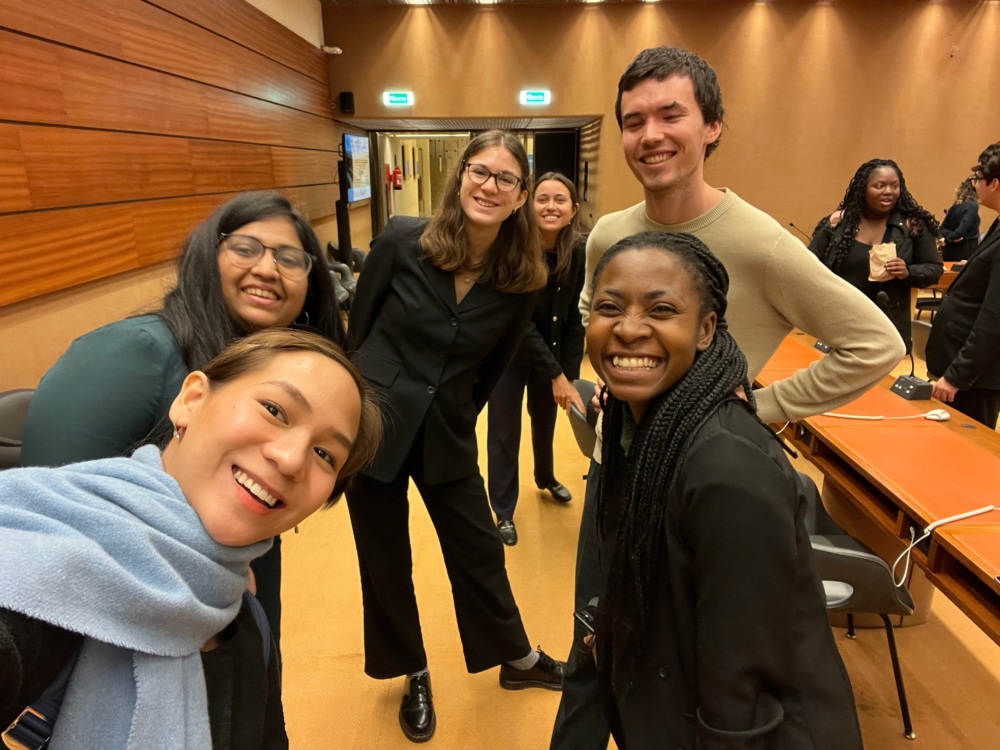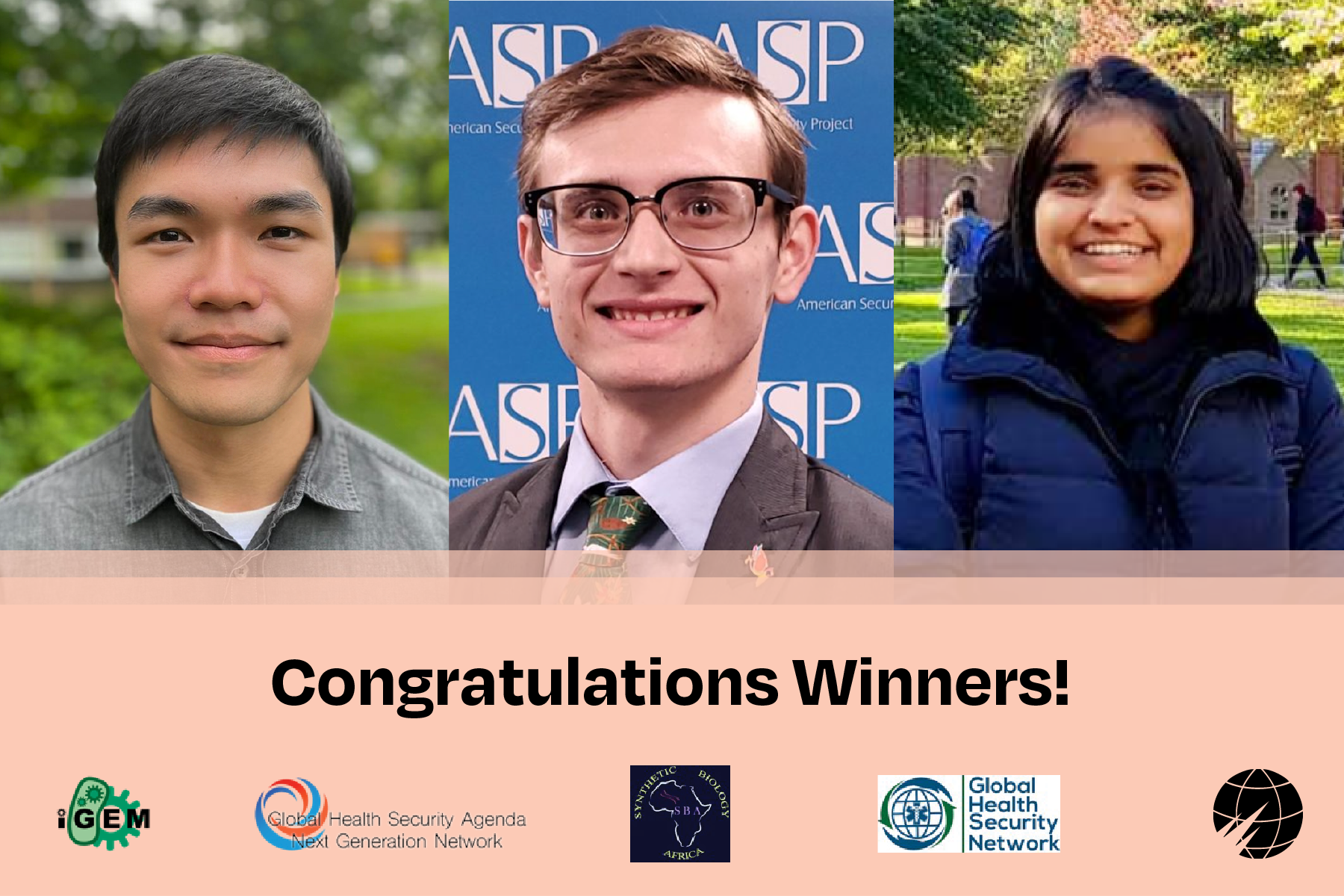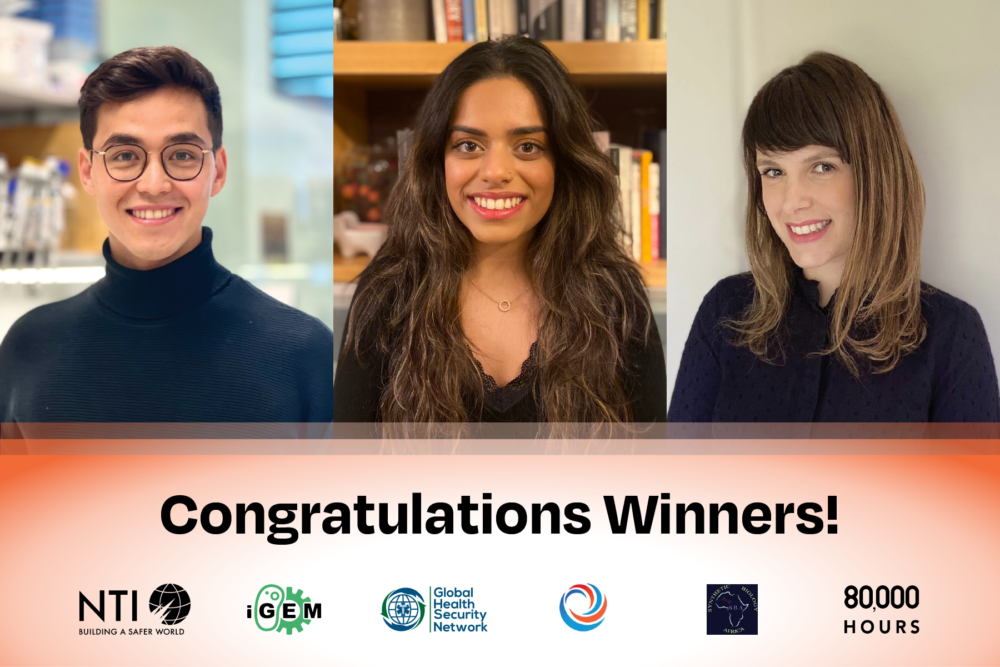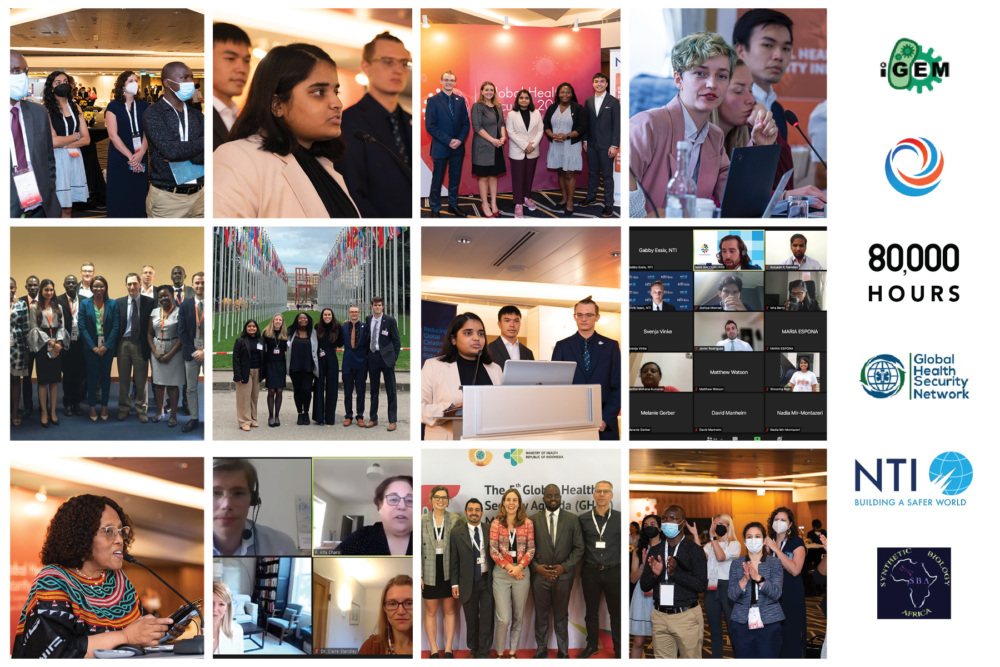
Apply for the 2024 NTI | bio Next Generation Biosecurity Delegation
NTI | bio will bring a 2024 Next Generation Biosecurity Delegation of early-career professionals to the Biological Weapons Convention (BWC) meetings from August 19 – 23.
Nicholas Cropper, Shrestha Rath, and Ryan Teo are the winners of the Sixth Annual Next Generation for Biosecurity Competition sponsored by NTI in partnership with the Next Generation for Global Health Security (GHS) Network (NextGen), the iGEM Foundation, SynBio Africa, and the Global Health Security Network (GHSN). Cropper is a master’s candidate in public health at the University of South Florida, Rath is a biosecurity researcher at the Centre for Effective Altruism, and Teo is a master’s candidate in mathematics of systems at the University of Warwick.
In their paper, Creating a Verification Protocol for the Biological Weapons Convention: A Modular-Incremental Approach, the team proposes that verification, in the context of the BWC, should be defined as “an ongoing process of data monitoring, assessment, and evaluation aimed at appraising a state party’s intent to comply with the BWC while also accounting for ambiguities inherent in the dual-use nature of biotechnology.” Using this definition, the authors outline a modular-incremental approach to establishing a comprehensive verification regime that reduces barriers to and incentivizes the submission of confidence building measures. Verification would be supported by strengthening Article X, expanding institutional support to BWC member states, and instituting a formal mechanism under Article V to collaboratively review evidence of noncompliance. The team proposes specific technical solutions that correspond with each policy approach to increase the measures’ effectiveness in assessing intent to comply.
The competition drew students and young professionals from 11 countries across five continents whose papers aimed at answering the question: “How can the global community leverage the tools of modern science to develop an effective and politically acceptable verification protocol to strengthen the Biological Weapons Convention?” An international expert panel of 23 judges evaluated the papers in a three-round process. A full listing of this year’s judges can be found below.
An additional team will be recognized this year for its outstanding submission to the competition – Cait Hamele, a doctoral candidate studying molecular genetics and microbiology at Duke University; Sam Pritchard, a research assistant and medical student at the University of Cambridge, and; Sophie Rose, a research assistant and master’s candidate studying infectious disease epidemiology at Johns Hopkins Bloomberg School of Public Health, took second place for their paper, Leveraging Advances in Biotechnology to Strengthen Biological Weapons Convention Verification Protocols. Their paper focused on applying multi-layered verification since no single mechanism will completely foster trust or transparency, let alone assess compliance or hinder the development of bioweapons. Recommendations included: (1) implementing machine learning to detect anomalies in the purchasing of nucleic acid sequences and therapeutics such as antivirals; (2) utilizing portable next-generation sequencers and multiplex immunoassays for sampling at facilities with dual-use capabilities; and (3) using community wastewater surveillance for biological threat agent detection.
Competition winners will receive travel support to attend the 2022 Global Health Security Conference. They will present on their paper during an NTI-hosted side event, The Next Generation of Health Security Leaders Networking Event – The Importance of the Views of Young Scientists and Leaders on June 28, 2022 at 5:30 PM Singapore Standard Time.
The Next Generation for Biosecurity Competition underscores the importance of promoting a global cadre of multi-sectoral, young professionals dedicated to reducing catastrophic biological risks. Follow #NextGenBiosecurity for updates.
2022 Next Generation for Biosecurity Competition Winner
2022 Next Generation for Biosecurity Competition Runner-Up
2022 Next Generation for Biosecurity Competition International Judges Panel
Sign up for our newsletter to get the latest on nuclear and biological threats.
NTI | bio will bring a 2024 Next Generation Biosecurity Delegation of early-career professionals to the Biological Weapons Convention (BWC) meetings from August 19 – 23.
Gurpreet Dhaliwal, Askar Kleefeldt, and Alexandra Klein have won the seventh annual Next Generation for Biosecurity Competition.
NTI | bio, the Next Generation for Global Health Security (GHS) Network, the iGEM Foundation, 80,000 Hours, SynBio Africa, and the Global Health Security Network (GHSN) have launched the seventh Next Generation for Biosecurity Competition.


